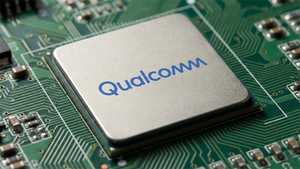Tachyum® today announced that it has successfully validated integer matrix operations running on its Prodigy® Universal Processor FPGA hardware.
The Tachyum team tested and verified vector operations, 8-bit integer matrix operations for image classification using a Resnet model with custom convolution and linear operators on Prodigy.
Tachyum’s Prodigy was designed to handle matrix and vector processing from the ground up. Among Prodigy’s vector and matrix features are support for a range of data types (FP64, FP32, TF32, BF16, Int8, FP8, FP4 and TAI); 2x1024-bit vector units per core; AI sparsity and super-sparsity support; and no penalty for misaligned vector loads or stores when crossing cache lines. This built-in support offers high performance for AI training and inference workloads, increases performance, and reduces memory utilization.
“Tachyum’s AI software stack supports AI applications with demanding computational requirements out of the box, rather than as an afterthought, which will radically change the efficiency and productivity of AI,” said Dr. Radoslav Danilak, founder and CEO of Tachyum. “Data centers are among the most energy-hungry facilities in the world, and power infrastructures cannot accommodate the rapid adoption of AI without a platform like Prodigy that is capable of efficient AI processing, plus standard workloads.”
Tachyum will validate all supported data types. The next plan is to validate matrix operations for the FP8 data type this year on Prodigy FPGA hardware.
As a Universal Processor offering industry-leading performance for all workloads, Prodigy-powered data center servers can seamlessly and dynamically switch between computational domains (such as AI/ML, HPC, and cloud) with a single homogeneous architecture. By eliminating the need for expensive dedicated AI hardware and dramatically increasing server utilization, Prodigy reduces CAPEX and OPEX significantly while delivering unprecedented data center performance, power, and economics. Prodigy integrates 192 high-performance custom-designed 64-bit compute cores, to deliver up to 4.5x the performance of the highest-performing x86 processors for cloud workloads, up to 3x that of the highest performing GPU for HPC, and 6x for AI applications.
A video demonstration of 8-bit integer matrix operations running on Prodigy FPGA is available at https://youtu.be/pc-t7ZdSBlE.
Follow Tachyum
https://x.com/Tachyum
https://www.linkedin.com/company/tachyum
https://www.facebook.com/Tachyum/
About Tachyum
Tachyum is transforming the economics of AI, HPC, public and private cloud workloads with Prodigy, the world’s first Universal Processor. Prodigy unifies the functionality of a CPU, a GPU, and a TPU in a single processor to deliver industry-leading performance, cost and power efficiency for both specialty and general-purpose computing. As global data center emissions continue to contribute to a changing climate, with projections of their consuming 10 percent of the world’s electricity by 2030, the ultra-low power Prodigy is positioned to help balance the world’s appetite for computing at a lower environmental cost. Tachyum received a major purchase order from a US company to build a large-scale system that can deliver more than 50 exaflops performance, which will exponentially exceed the computational capabilities of the fastest inference or generative AI supercomputers available anywhere in the world today. When complete in 2026, the Prodigy-powered system will deliver a 25x multiplier vs. the world’s fastest conventional supercomputer – built just this year – and will achieve AI capabilities 25,000x larger than models for ChatGPT4. Tachyum has offices in the United States, Slovakia and the Czech Republic. For more information, visit https://www.tachyum.com/.
View source version on businesswire.com: https://www.businesswire.com/news/home/20241203742089/en/
Contacts
Mark Smith
JPR Communications
818-398-1424
marks@jprcom.com





